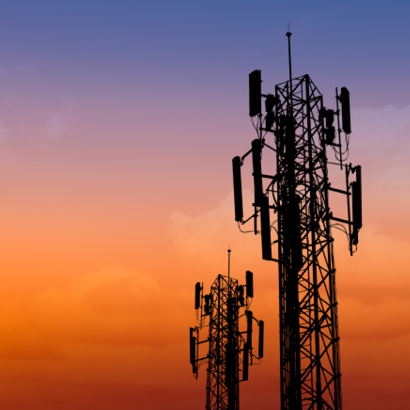
Telecommunication and Mobile: Telecommunication Infrastructure
The need to provide broadband coverage and connectivity for the ever-increasing demand from consumers and businesses creates opportunities and unique challenges for the infrastructure responsible for delivering this technology. Our Telecommunication Infrastructure practice works with telecom infrastructure development companies and those with infrastructure operations and interests on a broad range of complex issues, transactions, and agreements to address the evolving legal landscape.
We work with clients who develop, own, and maintain the full array of equipment including towers, rooftop sites, antennae sites, distributed antenna systems, and other installations; as well as data processing and storage centers.
We provide the most comprehensive array of legal services to the telecom infrastructure industry, including construction, finance, intellectual property, regulatory compliance, public policy advocacy, and more. Our core services are centered around our clients’ real estate matters—from acquisition and disposition, to leases, land use, and dispute resolution. With significant experience handling real estate matters involving telecom infrastructure, our team is well-equipped to help clients resolve any kind of real estate litigation.
Our team represents and counsels clients on a robust scope of matters such as:
- Bankruptcy and insolvency
- Boundary disputes
- Breach of contract
- Construction disputes
- Data and processing center development and acquisitions
- Data protection
- Eminent domain
- Ejectment
- Environmental due diligence, permitting, and litigation
- Financing
- Fraud and misrepresentation
- Intellectual property and trade secrets
- Landlord and tenant disputes
- Leases, licenses, and easement agreements
- Loan facility counseling
- Lobbying
- Mergers and acquisitions
- Rescission
- Real estate acquisitions and dispositions
- Real estate development and construction
- Real estate litigation
- Securitization and structured finance
- Site selection, zoning, and due diligence
- Tax
- Title and survey analysis
- Tortious interference
- Trespass
Thought Leadership
The year 2025 saw significant regulatory activity in the realm of digital assets. The US Congress and financial regulators took steps to create and implement a clear legal framework to facilitate financial transactions using digital assets, and they will continue to do so in 2026.
New York state and New York City continue to advance an extensive and evolving framework of workplace regulations.
Artificial intelligence regulation and litigation are set to take center stage in 2026, as new laws, guidance, and enforcement priorities are introduced at the federal and state levels.
In this article, Dr. Jan Boeing and Arnaud Dobelle outline the key milestones of the new regulatory framework, its interplay with financial sector rules such as DORA and PSD2, and what the upcoming Digital Omnibus proposal means for organisations deploying AI in Europe.

